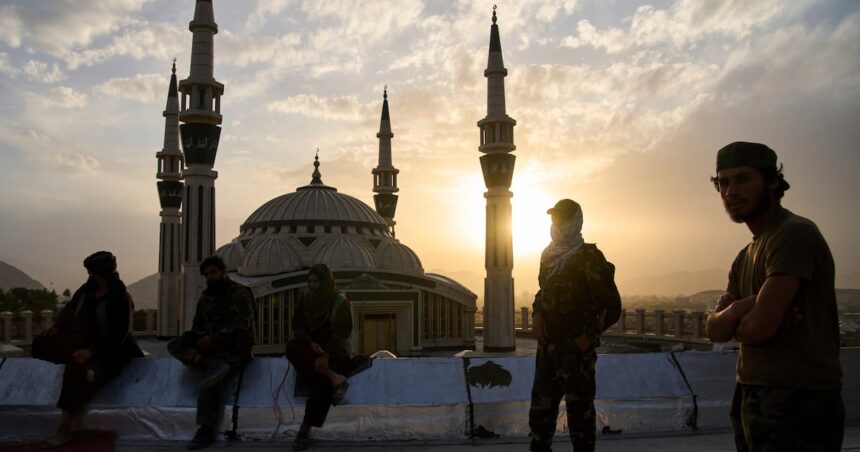The hushed, ornate hall of the Russian Foreign Ministry carried an unusual energy yesterday as I watched Foreign Minister Sergei Lavrov shake hands with Taliban envoy Suhail Shaheen. After nearly four years of international isolation, the Taliban government of Afghanistan received its first diplomatic recognition from a major power, marking a profound shift in the geopolitical landscape of Central Asia.
“Russia has decided to fully recognize the Islamic Emirate of Afghanistan as the legitimate government,” Lavrov announced, using the Taliban’s preferred name for their state. “This practical step reflects the reality on the ground and opens avenues for deeper cooperation.”
Standing in that Moscow chamber, I couldn’t help but recall the stark contrast to September 2021, when Taliban fighters stormed through Kabul as American helicopters evacuated embassy staff in scenes reminiscent of Saigon. Back then, Russia, like most nations, approached the Taliban victory with extreme caution, maintaining diplomatic contact while withholding formal recognition.
What changed? According to Dr. Elena Suponina, a senior analyst at the Russian Institute for Strategic Studies whom I interviewed after the ceremony, this move represents calculated opportunism rather than ideological alignment.
“Russia sees a power vacuum in Central Asia that America has abandoned,” she explained. “Recognition costs Moscow little but positions Russia as an influential player in Afghanistan’s future, particularly regarding security concerns and economic opportunities.”
This diplomatic gambit arrives precisely as Western influence in the region faces unprecedented challenges. The United States Agency for International Development has slashed its Afghanistan humanitarian budget by 42% since 2022, while European engagement remains hampered by human rights concerns.
Data from the UN Office on Drugs and Crime reveals another dimension: opium production in Afghanistan has decreased by nearly 80% under Taliban rule through brutal enforcement methods. Russian officials privately acknowledge this development serves their domestic interests, as Afghanistan has historically been the source of much of Russia’s heroin problem.
“This recognition isn’t about embracing Taliban ideology,” explained Abbas Gallyamov, former Kremlin speechwriter, during our conversation in a Moscow café. “It’s about pragmatic advantage in a multipolar world where Russia seeks to demonstrate independence from Western diplomatic frameworks.”
The Taliban, for their part, celebrated the announcement as vindication. “The world must accept the new reality of Afghanistan,” Taliban spokesperson Zabihullah Mujahid told me via secure messaging. “Russia has taken the first step toward respectful relations based on mutual interests rather than interference.”
For Afghan citizens, particularly women and minorities whose rights have deteriorated dramatically under Taliban rule, Russia’s recognition triggers complex emotions. In Kabul last month, I spoke with Farida, a former university professor now confined to her home. She requested I use only her first name.
“Every country that recognizes them without demanding protection for women’s education legitimizes our imprisonment,” she said, her voice trembling. “But if recognition brings economic investment that helps ordinary Afghans survive, how can I oppose it completely?”
The humanitarian stakes remain extraordinarily high. World Food Programme data indicates 13.8 million Afghans face acute food insecurity. The Afghan economy has contracted by approximately 30% since 2021, according to International Monetary Fund estimates.
Russia’s recognition appears carefully timed to maximize leverage. Moscow hosts significant influence in neighboring Tajikistan and Uzbekistan, countries vital to Afghanistan’s economic connectivity. Russian investment in Afghan mineral extraction could follow recognition, targeting the country’s estimated $1 trillion in untapped resources including lithium, crucial for battery production.
The U.S. State Department responded with measured criticism. “Russia’s unilateral recognition undermines international efforts to encourage improved governance and human rights protections in Afghanistan,” said spokesperson Adrienne Watson in a statement. However, the absence of stronger condemnation suggests Washington’s limited options.
China’s foreign ministry issued an intriguing response, calling the development “noteworthy” while stopping short of announcing its own recognition plans. Beijing maintains extensive economic interests in Afghanistan, particularly through potential inclusion in its Belt and Road Initiative.
Analysts suggest Russia’s move creates diplomatic pressure on neighboring states. “Pakistan, Iran, and the Central Asian republics now face increased incentive to formalize relations with the Taliban government,” explained Barnett Rubin, former senior adviser to the Special Representative for Afghanistan at the U.S. State Department, whom I interviewed via video call.
In Brussels, where I spoke with EU diplomats last week, the reaction mixed concern with resignation. “Russia has effectively accelerated the normalization timetable for the Taliban,” said one senior EU foreign policy official who requested anonymity. “We may soon face a situation where maintaining non-recognition becomes diplomatically untenable.”
The most immediate practical effect may involve Afghanistan’s frozen assets. Russia has advocated for releasing approximately $7 billion in Afghan central bank funds currently held in Western institutions. Recognition potentially strengthens this position, though U.S. officials maintain these funds should benefit the Afghan people directly rather than Taliban authorities.
As dusk fell over Moscow yesterday, I watched Taliban representatives celebrate at their newly legitimized embassy. The moment felt historic yet uncomfortably ambiguous – a pragmatic diplomatic maneuver with profound implications for Afghans still living under a regime that systematically violates fundamental human rights.
For Russia, the diplomatic initiative represents a low-cost opportunity to challenge Western influence while potentially gaining economic and security advantages. For Afghanistan’s 40 million citizens, the consequences remain uncertain, caught between isolation and recognition by a government pursuing its own strategic interests rather than their welfare.






